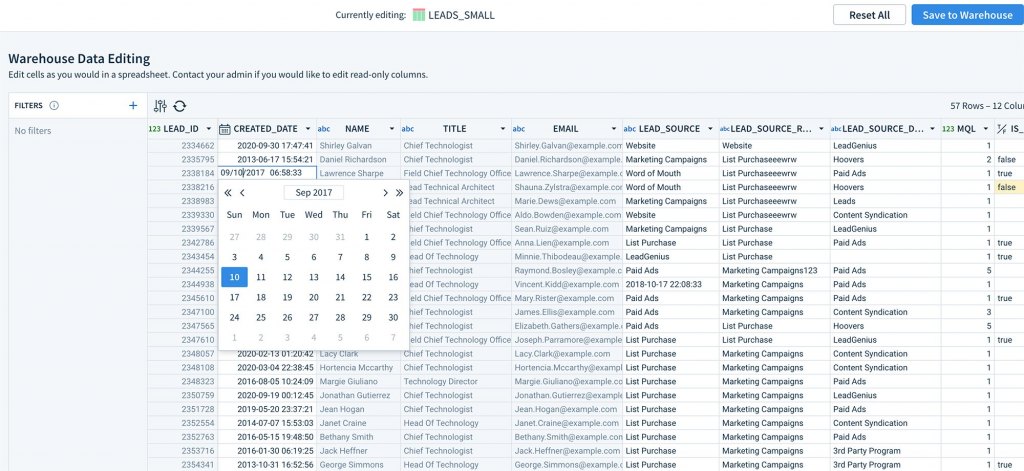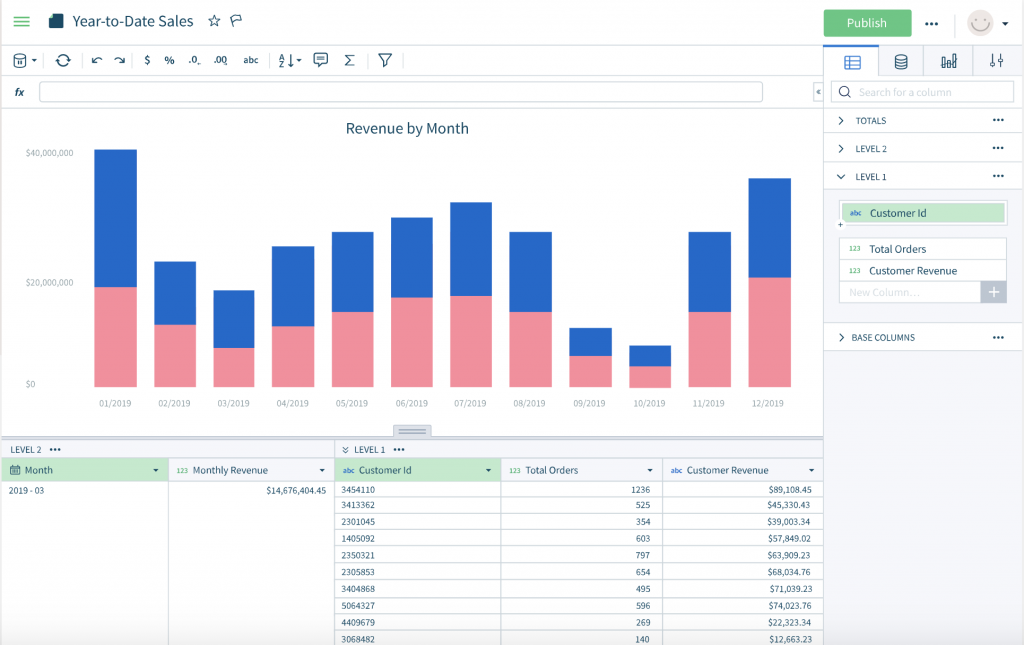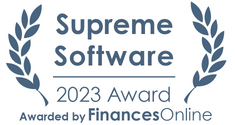In today’s thriving business market, strategic decisions for progressing a business may take work. Consolidating data takes time manually, and gathering information from multiple sources in a usable fashion takes a lot of work. Business Intelligence Software is the key to streamlining this process as they help uncover insights for creating strategic decisions. Business intelligence tools evaluate recent and historical data and display insights in simple visual representations.
Find out why Sigma Computing is the ideal software for business intelligence needs. It can connect to multiple data sources like databases, cloud storage, spreadsheets, etc. This tool allows users to access and combine data from various systems, reducing the need for manual data extraction and consolidation.
This article features the various quote-based pricing features and benefits that can cater to your business needs.

Sigma Computing Quote-Based Pricing Product Features
According to a recent global business intelligence software market study, the BI platform market was valued at $21.55 billion in 2022, with total revenue expected to increase by 8.46% from 2023 to 2029, nearly $38.05 billion. An increase in data-driven projects is helping the BI software market expand.
There has been a massive increase in the need for real-time analytics over the past few years. The International Data Group (IDG) reports that 69% of businesses are implementing or preparing to use data-driven efforts to enhance corporate strategic planning, decision-making, and production and sales, among other things. Companies in the sector employ nose intelligence software to monitor consumer behavior and engagement with goods and services.
With the surge of the pandemic in 2020, several business intelligence vendors progressed. Nearly 64.1% of the Global Analytics and BI applications market, which expanded by 2.2% to approach about $15.3 billion in licensing, maintenance, and subscription revenues in 2021, was held by the top 10 analytics and BI software providers. Here’s a breakdown of the top 10 analytics and BI software vendors.
Top 10 Analytics and BI Vendors and Others
Year 2021
SAS Institute: 3.4
SAS Institute
%Salesforce: 4.5
Salesforce
%SAP: 1.0
SAP
%Microsoft: 4.5
Microsoft
%Oracle: 3.6
Oracle
%Informatica: 17.3
Informatica
%Teradata Corporation: 6.9
Teradata Corporation
%IBM: -16.8
IBM
%Palantir Technologies: 37.0
Palantir Technologies
%Qlik: 1.6
Qlik
%Apps Run the World, September 2022
Designed byOverview of Sigma Computing

Sigma Computing is a robust cloud-based business intelligence and analytics platform that enables customers to explore, examine, and gain insights from their data. Business users can quickly make data-driven decisions using this tool’s user-friendly interface and self-service features.
This software’s user-friendly data exploration and visualization capabilities are one of its main advantages. Users can browse their data interactively, dive into specifics, and explore links and patterns. The platform provides various visualization tools like graphs, charts, and dashboards.
Sigma Computing excels in collaboration, an essential component of a solid analytics platform. Users of this function can collaborate on data-driven decision-making by sharing analytics, dashboards, and reports with other team members. Multiple people can collaborate on the same analysis in real-time capabilities, promoting effective teamwork and knowledge exchange.
Businesses looking to progress their workflow’s data consolidation and data quality should consider Sigma Computing as an option for a business intelligence tool.
Detailed Sigma Computing Review
Key Features of Sigma Computing:
- Spreadsheet-like interface
- Data source connectivity (cloud storage, databases, spreadsheets, etc.)
- Collaboration and sharing (live chat, comments, notes)
- Embedded analytics
- Workload management
- Supports security protocols
- Live edit capabilities
- Data exploration and visualization
- Data governance and security
- Data query and calculation capabilities
- API automation
- Reporting and dashboard
What industries benefit most from Sigma Computing?
Sigma Computing’s flexible, cloud-based business intelligence (BI) and analytics platform offers features that make it highly advantageous across a variety of industries. Here’s a look at the specific benefits for sectors that can gain the most from Sigma Computing’s capabilities:
- Retail and E-commerce: With robust data exploration and real-time analytics, Sigma Computing is ideal for tracking customer behavior, product performance, and inventory data. The embedded analytics feature enables integration within existing sales platforms, empowering businesses to analyze trends and adjust strategies for enhanced customer satisfaction.
- Finance and Banking: Sigma Computing’s advanced analytics capabilities, including predictive modeling and statistical operations, support complex financial analysis. Finance teams can gain insights into market trends, optimize portfolio performance, and strengthen risk management practices. The strong governance features ensure compliance with financial regulations.
- Healthcare: Sigma’s data governance and security compliance, including HIPAA and SOC 2 Type II, make it suitable for sensitive healthcare data. Healthcare organizations can analyze patient data, improve operational efficiencies, and support data-driven decision-making in areas like patient care, inventory of medical supplies, and workforce management.
- Manufacturing: Manufacturing firms benefit from Sigma’s real-time data consolidation across multiple data sources, facilitating performance monitoring across production lines, supply chain efficiency, and equipment maintenance tracking. Predictive analytics helps anticipate demand and prevent production bottlenecks.
- Telecommunications: Sigma Computing’s scalability and high-volume data handling are ideal for telecom companies managing large datasets. By analyzing customer data, telecom providers can optimize network operations, reduce churn, and improve customer segmentation.
- Media and Entertainment: In this data-intensive industry, Sigma’s capabilities for analyzing user engagement metrics, subscription trends, and content performance are valuable. The platform’s collaboration features allow teams to work on campaign data in real-time, streamlining the process of adjusting strategies to capture audience attention.
- Energy and Utilities: For utility providers and energy companies, Sigma supports monitoring data from multiple sources, helping track asset performance and optimize energy distribution. Advanced analytics support sustainability initiatives by uncovering insights on energy usage patterns.
Sigma Computing Quote-Based Plan Benefits and Features
Sigma Computing has not provided specific pricing plans for customers, yet it offers various features and benefits that are amenable to any business size. Listed below are the benefits of Sigma Computing’s quote-based plans.
Data Exploration and Visualization
Powerful data exploration and visualization tools are available from Sigma Computing. Users can explore their data, dive into specifics, and build interactive visualizations like dashboards and charts. It allows users to find insights, recognize trends, and effectively communicate findings.
Data Source Connectivity
Databases, cloud storage, spreadsheets, and other data sources are easily accessible through the platform. It gives users access to and the ability to aggregate data from several systems, giving them a complete picture of their business activities.
Data Governance and Security
Sigma Computing has vital data governance elements to guarantee data confidentiality, correctness, and consistency. Sensitive data can be safeguarded and shared correctly by administrators who can manage permissions at various levels and control access to data.
Collaboration and Sharing
The platform promotes cooperation by enabling users to share analytics, dashboards, and reports with team members. Using real-time collaboration tools promotes teamwork and knowledge sharing.
Embedded Analytics
Sigma Computing enables enterprises to integrate analytics into their current workflows, making it effortlessly linked to other programs or websites. This feature improves user adoption and streamlines procedures by enabling users to access analytics in accustomed settings.
Advanced Analytics Capabilities
The advanced analytics features this cloud-based business intelligence solution supports include statistical operations, data modeling, and predictive analytics. Users can perform intricate computations, use cutting-edge statistical methods, and derive deeper insights from their data.
Time and Cost Savings
Sigma Computing lessens the need for IT or data teams for data analysis chores by enabling self-service analytics. Business users can independently explore and evaluate data without delays or additional resource allocation, which results in considerable time savings and cost reductions.
Flexibility and Adaptability
Sigma Computing is built to support a broad range of use cases, from marketing and sales to data engineering analytics, a variety of industries, including retail and consumer packaged goods, financial services, and healthcare. Its versatility allows users may evaluate data from various corporate activities, including marketing, sales, finance, and operations. Anyone can customize the platform to meet various organizations’ unique demands and specifications.
Here are the features users can access in a quote-based plan:
1. Connect and Model
Sigma links to your contemporary cloud data warehouse and lets you view your data immediately.

Cater to large datasets without a hassle.
- The Cloud Data Warehouse lets you add your credentials and start looking for data easily.
- Sigma Computing features a Modeling Data users can use to simplify data organization.
- Regular complex queries or massive datasets are resolvable through Sigma Computing’s quick performance in writing them back to the data warehouse.
- Sigma Computing integrates well with different third-party applications that comprise the modern data stack.
2. Analyze
Users can easily analyze all the available data in the cloud data warehouse.
- Sigma has a fast and flexible spreadsheet interface to add, group, and calculate easily.
- Users can view all data in the cloud data warehouse to make more informed decisions within the organization.
- Drill down to the specifics by checking more details of the data provided.
3. Collaborate
Sigma is designed to facilitate group editing, exploration, and sharing. In a few clicks, involve everyone in data insights.

Collaborate on data editing with people within the organization.
- With Sigma, engineers and business professionals can iteratively and graphically collaborate on data, metrics, and visualizations, leaving SQL audit and optimization trail.
- You may browse, explore, and analyze with your team using Sigma. Discover real-time insights directly from the data warehouse source to take action right away.
- Sigma lets users annotate charts and data with remarks, notes, and analyses.
4. Administer and Govern
Sigma Computing ensures users that the software is built for security, governance, and automation.
- Sigma gatekeeps data from the data warehouse. Every action is carried out inside the warehouse, and everything remains where it belongs.
- Sigma provides you with a complete range of APIs for those tasks that demand patience and time to complete. Sigma automation makes it simple to perform administrative tasks like adding users, modifying permissions, and publishing workbooks.
- Row-level and role-based security are available with Sigma to guarantee that the appropriate data is sent to the appropriate individual like GDPR, SAS70, AWS Private Link, HIPAA, Privacy Shield, CCPA, CSA, SOC 3, SOC 2 Type II, and SOC 1 Type II, and other important security protocols.
5. Embed
Data exploration is a must for organizations and Sigma Computing covers this feature.

More insights regarding the charts are provided.
- Most embedded analytics are limited to a few static charts. Sigma ensures that there is an unlimited data, no boundary exploration, and real-time insights.
- Your customers will access the same spreadsheet-based interface as your staff using Sigma’s analytics integration.
- Users can build, change, share, and save new insights on their data.
Is Sigma Computing the right platform for you?
Sigma Computing aims to serve various use cases and industries. The platform’s flexibility and adaptability suit businesses of all sizes and industries, offering everything from financial analysis to operational reporting to marketing and sales analytics.
The software’s advanced analytics capabilities boost its overall value. Users can use statistical methods, data modeling strategies, and predictive analytics to delve deeper into their data and find hidden patterns. Sigma Computing gives consumers the resources they need to glean insightful information from their data through the application of sophisticated statistical methods or the execution of complex calculations.
Regardless, just like any software solution, balancing the pros and cons of Sigma Computing from other platforms is a wise decision before investing financially.
























Leave a comment!